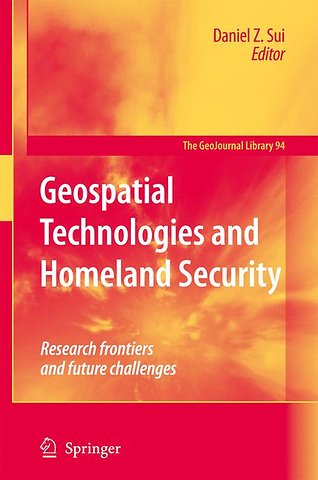Geospatial Technologies and Homeland Security
Research Frontiers and Future Challenges
Paperback Engels 2010 9789048178483Samenvatting
Homeland security and context In the Geographical Dimensions of Terrorism (GDOT) (Cutter et al. 2003), the first book after 9/11 to address homeland security and geography, we developed several thematic research agendas and explored intersections between geographic research and the importance of context, both geographical and political, in relationship to the concepts of terrorism and security. It is good to see that a great deal of new thought and research continues to flow from that initial research agenda, as illustrated by many of the papers of this new book, entitled Geospatial Technologies and Homeland Security: Research Frontiers and Future Challenges. Context is relevant not only to understanding homeland security issues broadly, but also to the conduct of research on geospatial technologies. It is impossible to understand the implications of a homeland security strategy, let alone hope to make predictions, conduct meaningful modeling and research, or assess the value and dangers of geospatial technologies, without consideration of overarching political, social, economic, and geographic contexts within which these questions are posed.
Specificaties
Lezersrecensies
Inhoudsopgave
Rubrieken
- advisering
- algemeen management
- coaching en trainen
- communicatie en media
- economie
- financieel management
- inkoop en logistiek
- internet en social media
- it-management / ict
- juridisch
- leiderschap
- marketing
- mens en maatschappij
- non-profit
- ondernemen
- organisatiekunde
- personal finance
- personeelsmanagement
- persoonlijke effectiviteit
- projectmanagement
- psychologie
- reclame en verkoop
- strategisch management
- verandermanagement
- werk en loopbaan
